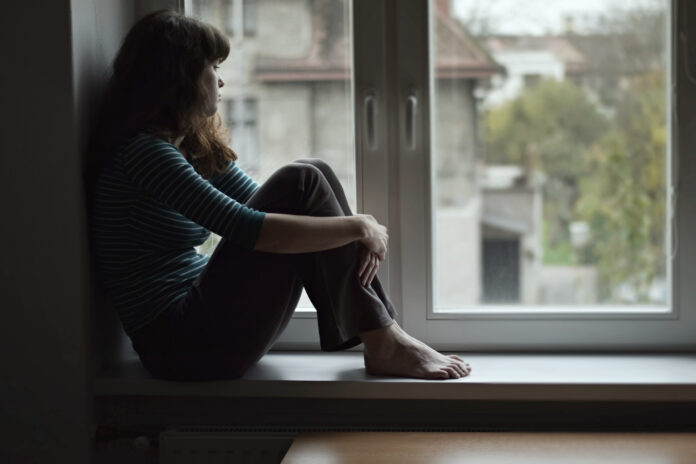Now, more individuals feel lonely than ever before. Loneliness is a normal emotion, but some individuals prefer solitude more than others. Chronic or intense bouts of isolation and loneliness can exacerbate a more serious health condition.
Isolation does not occur when individuals are alone, but it can occur in social settings. Isolation is caused by a lack of connection rather than a lack of people. We all have an innate desire and need to connect with others, and when that need is not fulfilled, we begin to feel alone. Extroverts are more susceptible to the negative effects of isolation than introverts because they are more likely to experience low moods when alone.
The distinction between chronic and healthy solitude
There are times when everyone desires solitude to reflect, recharge, or do something for themselves. It can be a form of self-care to temporarily isolate ourselves from the outside world and remain in our bubble. At what point, however, does healthy solitude become unhealthy? When moving from healthy solitude to chronic isolation, we enter a discouraging state of mind. This transition occurs when we focus on the loss of our relationships or our feelings of isolation.
Some individuals may not be consciously aware of this transition, but their minds and bodies will demonstrate the negative effects of isolation. When we focus on what’s missing, we become further estranged from others and life, which can result in feelings of isolation. Our mind and body will manifest symptoms that reflect the heaviness of our situation. Here are some indicators of social isolation, as well as solutions.
You feel alone in social situations
Suppose you struggle with feelings of isolation even when in relationships or in the company of others. In this case, these feelings may indicate a lack of connection or a more serious mental health condition. Ask yourself what is causing these feelings to arise. If you lack relationships with others, you may need to surround yourself with individuals who are more interesting, have more in common with you, and share your personality, values, and morals.
You feel fatigued more frequently
Those who experience social isolation may feel more exhausted than usual. If a person experiences chronic social isolation, being social and interacting with others may exhaust them. Consistent fatigue can result in difficulty sleeping, a poor diet, a weakened immune system, and other issues, ultimately affecting your mental, physical, and emotional health.
You struggle to communicate in ways that were once second nature.
If you feel unable to connect with others on a deeper level, which was once effortless, this may indicate a more serious issue. This could also be the case if the connections you do make feel superficial and unsatisfying. This disconnect could feel interminable, causing you to feel misunderstood.
You begin to exhibit symptoms of depression
Chronic social isolation and depression frequently occur together. When the issue becomes more significant, there are a number of typical presentations. It would be helpful if you monitored signs such as continued isolation, a feeling of numbness, unexplained changes in eating and sleeping, and negative thinking. Other less frequent symptoms include guilt, irritability, a slower rate of movement or speech, and restlessness.
You have developed unhealthy coping mechanisms
When we are uncertain about how to manage or eliminate a situation, we often resort to unhealthy coping mechanisms. Isolation from others can manifest as smoking, substance abuse, overeating, or excessive alcohol consumption. These behaviors serve as coping mechanisms for people who feel alone in order to alleviate their emotions and connect with a substance rather than other people. Loneliness and isolation may be crucial elements in the development of an addiction. If you use binge eating, drugs, alcohol, or other potentially addictive and unhealthy behaviors to cope with your loneliness, you may have a more serious problem.
You suffer from suicidal ideation
Chronic social isolation can result in a lack of purpose. Some people ask themselves, “Why am I here?” or begin to believe they are a burden to others. People who feel suicidal often state that they do not wish to impose on others, so it is important to pay attention to this statement. If your thoughts shift in this direction, you should contact a mental health support line or a professional to receive the necessary assistance.
Obtaining assistance from a support group or mental health professional is one of the most urgent and effective means of resolving your problems. Nevertheless, you can do a few additional things to lessen your feelings of isolation. One method is to employ direct communication. Sometimes it is difficult to communicate our needs to the people in our lives. Nonetheless, practicing direct communication can be extremely beneficial. We are a social species that require one another to thrive and survive. Discuss your needs directly with members of your inner circle, and do the same for them. Ask them what they want most, and if you can, assist them in obtaining it. Even when we are feeling down, helping others can improve our mood and sense of purpose, making us feel better about ourselves.
Stopping the use of social media if it worsens your feelings of isolation is another method for reducing feelings of isolation. People will invariably feel as though they do not have enough, are not good enough, or are not accomplishing enough due to our hyperconnectivity and social media. How could you think otherwise when you are constantly exposed to what everyone else is doing and choosing to highlight? This type of constant comparison can exacerbate feelings of isolation and loneliness, so it is essential to take a break from social media in order to rebalance.
When battling isolation, we typically convince ourselves that others would not understand and that our situation is unique, despite the fact that this is rarely true. When you believe that others cannot relate to your situation, you tend to isolate yourself. However, when we realize that others feel isolated as well, our focus shifts from ourselves to those who may need our assistance. The desire to be alone is not problematic. However, problems arise when you become too isolated.

















